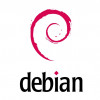Official support for riscv64
What’s new in Debian 13
Supported architectures
The following are the officially supported architectures for Debian 13:
- 64-bit PC (amd64)
- 64-bit ARM (arm64)
- ARM EABI (armel)
- ARMv7 (EABI hard-float ABI, armhf)
- 64-bit little-endian PowerPC (ppc64el)
- 64-bit little-endian RISC-V (riscv64)
- IBM System z (s390x)
Additionally, on 64-bit PC systems, a partial 32-bit userland (i386) is available. Please see Reduced support for i386 for details.
What’s new in the distribution?
Official support for riscv64
This release for the first time officially supports the riscv64 architecture, allowing users to run Debian on 64-bit RISC-V hardware and benefit from all Debian 13 features.
Hardening against ROP and COP/JOP attacks on amd64 and arm64
trixie introduces security features on the amd64 and arm64 architectures designed to mitigate Return-Oriented Programming (ROP) exploits and Call/Jump-Oriented Programming (COP/JOP) attacks.
On amd64 this is based on Intel Control-flow Enforcement Technology (CET) for both ROP and COP/JOP protection, on arm64 it is based on Pointer Authentication (PAC) for ROP protection and Branch Target Identification (BTI) for COP/JOP protection.
The features are enabled automatically if your hardware supports them. For amd64 see the Linux kernel documentation and the Intel documentation, and for arm64 see the Wiki, and the Arm documentation, which have information on how to check if your processor supports CET and PAC/BTI and how they work.
HTTP Boot Support
The Debian Installer and Debian Live Images can now be booted using “HTTP Boot” on supported UEFI and U-Boot firmware.
On systems using TianoCore firmware, enter the Device Manager menu, then choose Network Device List, select the network interface, HTTP Boot Configuration, and specify the full URL to the Debian ISO to boot.
For other firmware implementations, please see the documentation for your system’s hardware and/or the firmware documentation.
Improved manual pages translations
The manpages-l10n project has contributed many improved and new translations for manual pages. Especially Romanian and Polish translations are greatly enhanced since bookworm.
Spell-checking support in Qt WebEngine web browsers
Web browsers based on Qt WebEngine, notably Privacy Browser and Falkon, now support spell-checking using hunspell data. The data is available in the BDIC binary dictionary format shipping in each Hunspell language package for the first time in Trixie.
64-bit time_t ABI transition
All architectures other than i386 now use a 64-bit time_t ABI, supporting dates beyond 2038.
On 32-bit architectures (armel and armhf) the ABI of many libraries changed without changing the library “soname”. On these architectures, third-party software and packages will need to be recompiled/rebuilt, and checked for possibly silent data loss.
The i386 architecture did not participate in this transition, since its primary function is to support legacy software.
Debian progress towards reproducible builds
Debian contributors have made significant progress toward ensuring package builds produce byte-for-byte reproducible results. You can check the status for packages installed on your system using the new package debian-repro-status, or visit reproduce.debian.net for Debian’s overall statistics for trixie and later.
You can contribute to these efforts by joining #debian-reproducible on IRC to discuss fixes, or verify the statistics by installing the new rebuilderd package and setting up your own instance.
wcurl and HTTP/3 support in curl
Both the curl CLI and libcurl now have support for HTTP/3.
HTTP/3 requests can be made with the flags --http3 or --http3-only.
The curl package now ships wcurl, a wget alternative that uses curl to perform downloads.
Downloading files is as simple as wcurl URL.
BDIC Binary Hunspell Dictionary Support
Trixie ships .bdic binary dictionaries compiled from Hunspell source for the first time in Debian. The .bdic format was developed by Google for use in Chromium. It can be used by Qt WebEngine, which is derived from Chromium’s source. Web browsers based on Qt WebEngine can take advantage of the provided .bdic dictionaries if they have appropriate upstream support. More information is available in the related bug report.
Desktops and well known packages
This new release of Debian comes with a lot more software than its predecessor bookworm; the distribution includes over 14116 new packages, for a total of over 69830 packages. Most of the software in the distribution has been updated: over 44326 software packages (this is 63% of all packages in bookworm). Also, a significant number of packages (over 8844, 12% of the packages in bookworm) have for various reasons been removed from the distribution. You will not see any updates for these packages and they will be marked as “obsolete” in package management front-ends; see Obsolete packages.
Debian again ships with several desktop applications and environments. Among others it now includes the desktop environments GNOME 48, KDE Plasma 6.3, LXDE 13, LXQt 2.1.0, and Xfce 4.20.
Productivity applications have also been upgraded, including the office suites:
- LibreOffice is upgraded to version 25
- GNUcash is upgraded to 5.10;
Plasma 6
Debian 13 will be the first release of Debian shipping Plasma 6. This is a major upgrade from Plasma 5 found in Debian 12 and is built on an entirely new stack based on Qt 6 and KDE Framework 6 libraries.
Debian 13 (trixie) ships:
- Qt 6.8.2 (up from 6.4.2)
- KDE Frameworks 6.13 (new)
- Plasma 6.3.6 (replaces Plasma 5.27.5)
- KDE Gear applications:
KDE PIM suite in version 24.12.3
Other Gear applications in version 25.04.3 (except Neochat, KDevelop, Partition Manager)
The details of all packages added and removed in the stack between Debian 12 and 13 can be found in the Trixie Release Plans wiki page of the Qt / KDE Team.
In place upgrades of user profiles are generally supported but some occasional issues have been reported. Issues that could not be fixed in the distribution are being tracked in the Plasma 6 Upgrade Quirks wiki page alongside their workarounds.
For compatibilty with existing applications, Debian 13 also ships:
Qt 5.15.15 (up from 5.15.8)
KDE Frameworks 5.116 (up from 5.103)
Krita and a few other applications still depend on KDE Frameworks 5 but KF5 are not developed anymore and are considered deprecated upstream. They will be removed during the forky development cycle.


